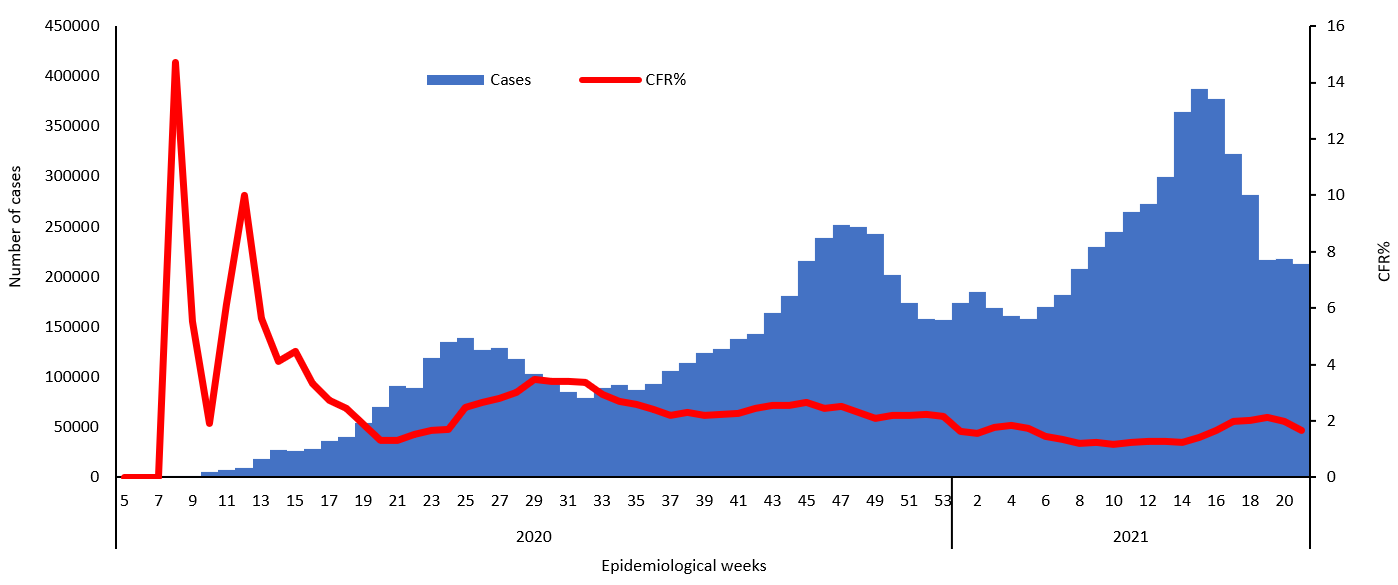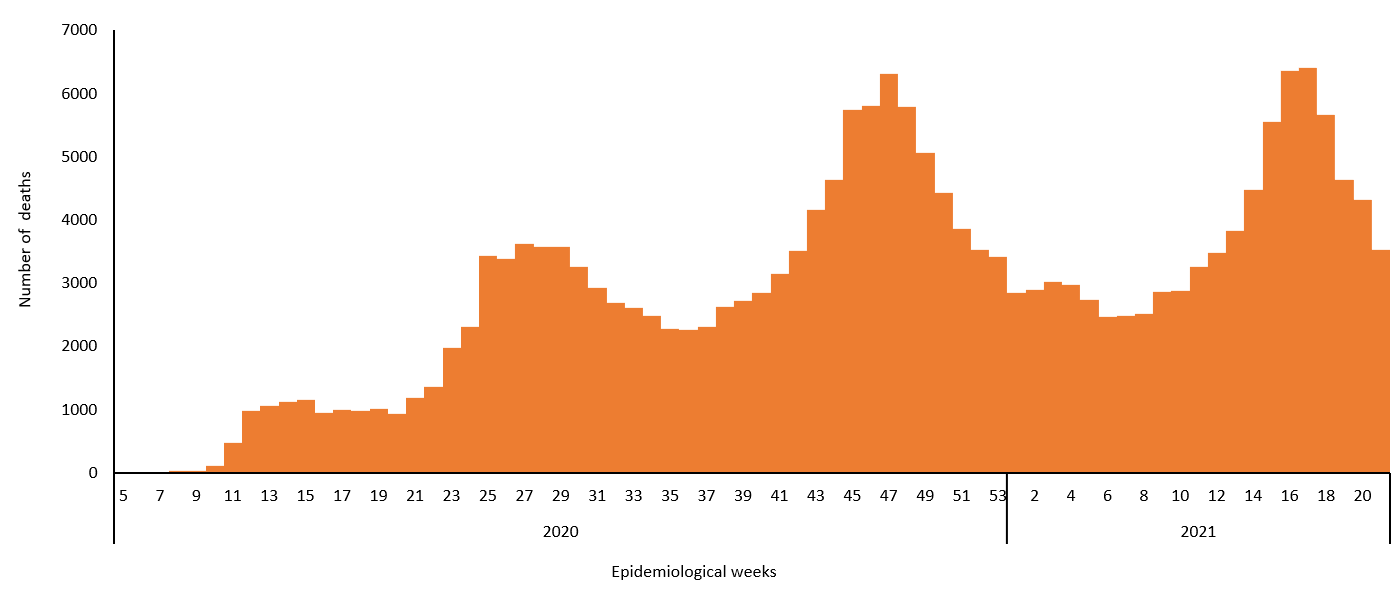The coronavirus disease COVID-19 continues to spread at the regional and global levels. As of 29 May 2021, the global cumulative incidence reached 169 130 935 reported cases and 3 519 307 associated deaths with a case fatality ratio (CFR) of 2.1%. Meanwhile, the 22 countries of the Eastern Mediterranean Region (EMR) have reported a total of 10 082 162 cases, which represent about 6% of the global count, with 201 782 associated deaths (CFR 2%). Most countries in the Region are in the community transmission phase.
Since the beginning of the outbreak, the country that has reported the highest number of total cases in the Region is Islamic Republic of Iran (2 893 218 cases; 28.7% of the Region’s total), followed by Iraq (1 193 608; 11.8%) and Pakistan (918 936 ; 9.1%). Islamic Republic of Iran also reported the highest number of total associated deaths (79 741; CFR 2.8%) followed by Pakistan (20 736; CFR 2.3%) and Iraq (16 334; CFR 1.4%). The highest CFRs were reported by Yemen (19.6%) followed by Sudan (7.4%), while the lowest CFRs were reported by Qatar (0.3%), United Arab Emirates (0.3%) and Bahrain (0.4%).
During epidemiological week 21, the Region reported a decrease in cases of 2.2% when compared to the previous week (212 636 cases compared to 217 439 cases). Similarly, a decrease of 18.5% was observed for associated deaths (3526 deaths compared to 4326 deaths).
Bahrain, Afghanistan and Kuwait reported a relative increase in COVID-19 activity in week 21. The cumulative number of cases increased from 214 870 to 235 699 in Bahrain (a 9.7% weekly increase), from 66 275 to 71 838 in Afghanistan (an 8.4% weekly increase), and from 298 223 to 306 717 in Kuwait (a 2.8% weekly increase). Bahrain, Tunisia and Oman had the largest relative increase in deaths.
In terms of testing, a total of 149 353 963 laboratory PCR tests were conducted since the start of the outbreak across the Region including 4 542 801 tests in week 21, which shows an 8.9% increase compared to the previous week when 4 173 412 tests were conducted. The highest number of PCR tests were reported from United Arab Emirates (49.9 million), followed by Islamic Republic of Iran (19.7 million) and Saudi Arabia (19 million). The United Arab Emirates and Bahrain are performing the highest rates of testing per capita (5046/1000 and 2708/1000, respectively). The average positivity rate for the Region is 6.8%. WHO recommends a positivity rate of around 3–12% as a general benchmark indicating adequate testing, which was achieved in most countries of the Region.
Meanwhile, COVID-19 vaccination continues across the Region. The total number of doses administered so far in the 22 countries is 65 496 284. Saudi Arabia has administered the highest number of doses at 14 180 660, followed by Morocco at 14 143 401 and United Arab Emirates at 12 870 553. On the other hand, the total number of administrated doses in Sudan is 358 236, in Somalia is 134 133, in Yemen is 104 070, in Libya is 61 212, in Syria is 24 781, and in Djibouti is 13 042.*
Supporting countries in the Region
The regional incident management support team continues to coordinate the response and provide technical support to countries and partners in the Region in the areas of coordination and partnership, surveillance, laboratory capacity, clinical management, infection prevention and control, risk communication and community engagement, points of entry according to the International Health Regulations (2005), research, health systems, and essential health services among others.


For more data from the Region, please visit the COVID-19 dashboard.
*The data on vaccination is obtained from a number of sources including media reports and country websites for ministries of health.
Subscribe to the monthly infectious hazard preparedness newsletter of WHO’s Health Emergencies Programme for latest data and analysis on epidemic- and pandemic-prone diseases, as well as news on outbreak preparedness and response within WHO’s Eastern Mediterranean Region.




